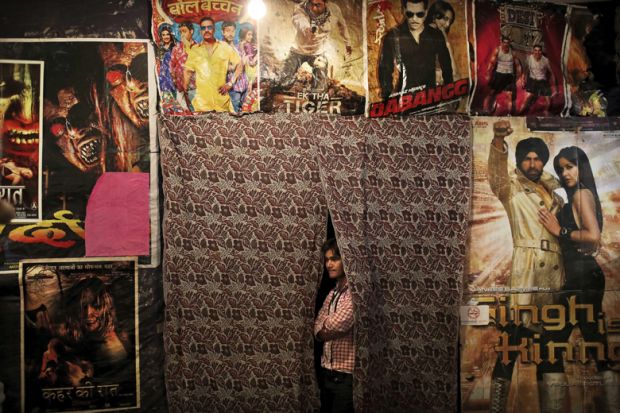An upcoming Bollywood film thought to be based on a leading Indian university has been criticised as the latest piece of Hindu nationalist “propaganda” against dissidents, after a recent student election cemented opposition to the country’s ruling party on campus.
Jawaharlal Nehru University (JNU), long known for its active student politics and liberal orientation, has become a focal point of right-wing nationalists’ fight for control of India’s institutions, with the university seen as “an ideological polar opposite by the current regime”, according to Ajay Gudavarthy, associate professor at JNU’s Centre for Political Studies.
Weeks before the country is set to go to the polls in the world’s largest democratic election, the Delhi-based university held its own elections for the first time since 2019. Candidates from the left won all seats, with a Dalit student securing the role of president of the student union.
But the new student leaders, elected at the end of March, have already squared up against university bosses, accusing the administration of excluding them from an academic council meeting on student issues in what it described as a “dictatorial” move.
Tension between the university’s student representatives and administrators have been ongoing since 2016, when protests led to the arrest of the then student body president. The subsequent chilling effect and distancing by university leaders “seems to breed unnecessary antagonism to a great degree”, said Rajarshi Dasgupta, assistant professor also at JNU’s Centre for Political Studies. The university did not respond to requests for comment.
This animosity goes both ways. Writing in the Indian Express, new student president and PhD student Dhananjay called for an end to the “politically-motivated recruitment” of university faculty, which he said was part of a larger project of “saffronisation of higher education”, a term used to describe increasing Hindu nationalist influence.
Attacks on liberal universities are also playing out in popular culture, according to Professor Dasgupta, as the release of a Bollywood film titled Jahangir National University was postponed after initially being slated to come out in April.
With the strapline “Can one educational university break the nation?”, the film is expected to be critical of the real JNU's left-wing culture, following the likes of The Kerala Story, a 2023 Bollywood film promoted by some BJP politicians that portrayed the downfall of a group of Hindu women who converted to Islam. It is unclear why the release has been postponed, but the film’s trailer received criticism from some parts of Indian social media and press.
“The film on JNU is one piece of a slew of jingoistic ‘nationalist’ films that have been churned out in the past few years,” said Professor Dasgupta. “These films have found a niche market by peddling conspiracy theories about ‘terrorists’ and internal enemies of the nation.” He added that these were targeted at “spaces like JNU that appear to contest the narrative of triumph of the ruling party and its specific vision of nationalism”.
To its defenders, JNU, a public university, is also seen as a victim of prime minister Narendra Modi’s supposed sidelining of public education in favour of private universities. India’s ruling party “wishes to undermine public education in general, and encourage private universities in its place”, said Professor Gudavarthy. “It is this imperative to privatise higher education in India that drives the hyper-nationalist discourse, which ends up more as propaganda than a genuine battle of ideas.”
Dhananjay also vowed to defend publicly funded education, writing that students could face “skyrocketing” fees as universities are granted increasing autonomy, while the establishment of foreign and private universities is also being encouraged by India’s leaders. Privatisation will not “take off”, argued Professor Dasgupta, unless “public universities lose their reputation as premier institutions”, motivating the BJP government and its supporters to “vilify the university”.




